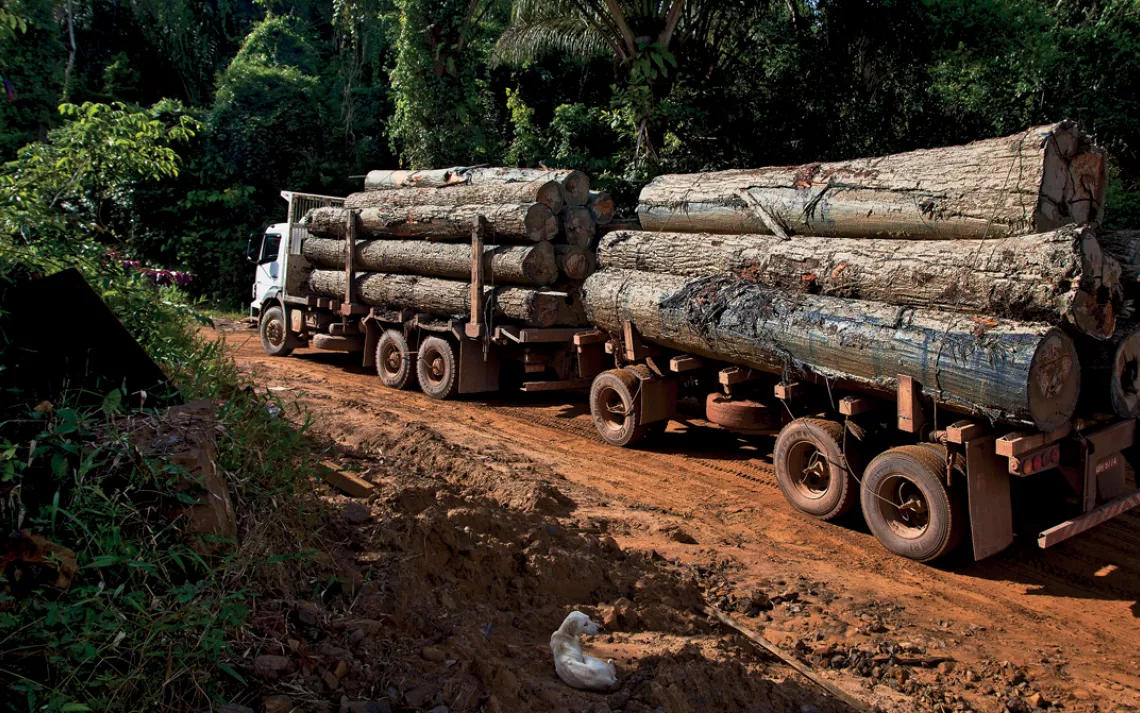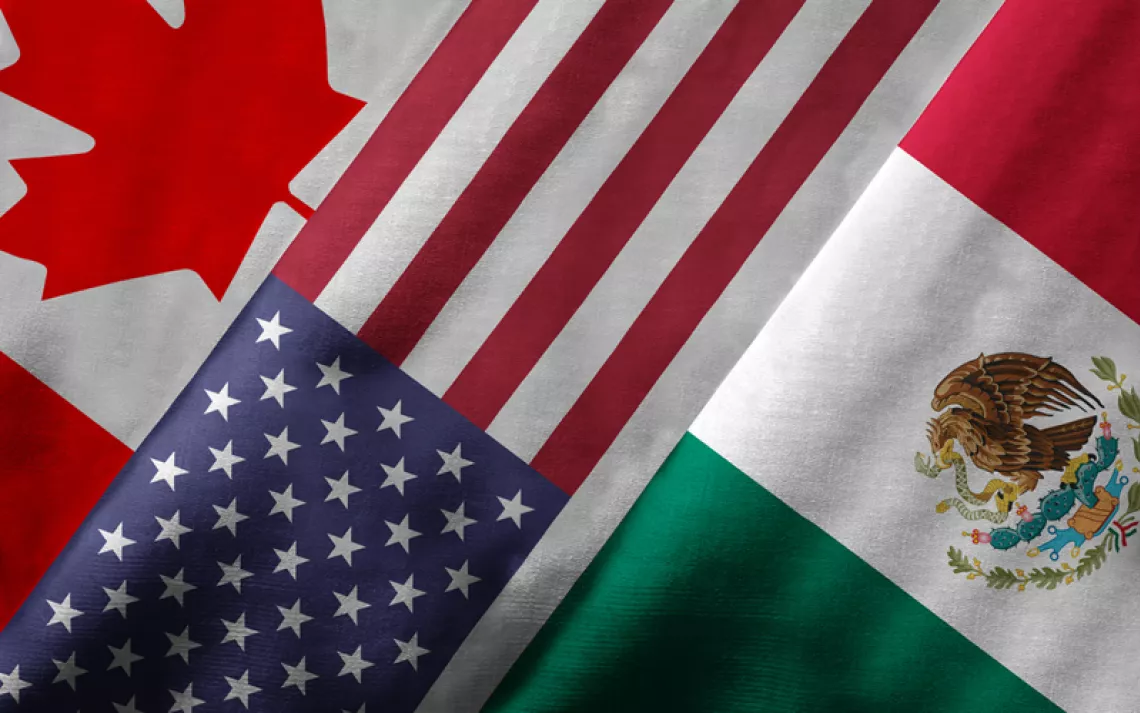Branching Out Against Illegal Logging
How a little-known U.S. trade law has clipped the global black market for lumber

Logging Truck in Para StateA truck loaded with timber on the Curua-Una road after crossing the River of the same name, near Santarem, Para State. | Photo by Marizilda Cruppe/Greenpeace
Last fall, federal agents raided the Virginia headquarters of Lumber Liquidators, the nationwide retailer of discount hardwood flooring, on suspicion that the company was selling wood illegally harvested from forests in the Russian Far East. The region is home to the endangered Siberian tiger and, allegedly, to criminal logging enterprises that reach into China.
While the raid was high-profile, few people know about the legal muscle behind it: the Lacey Act. Passed by Congress more than 100 years ago to halt the poaching of protected game and birds, the law was revised in 2008 to bar U.S. companies from importing ill-gotten lumber. Because it protects foreign forests as well as American jobs, the 2008 amendment grew out of a rare alliance between environmentalists, the timber industry, and labor unions.
Over the past six years, the Sierra Club's Responsible Trade Program has worked to protect the Lacey Act from being gutted by anti-regulation zealots in Congress and to get it more rigorously enforced. Sierra asked Jesse Prentice-Dunn, the program's campaign representative, for a primer on the impact of this little-known legislation.
Is the Lacey Act's 2008 amendment working? Definitely. The benefits haven't been totally quantified yet, but we believe that over the last decade, illegal logging has declined by about 25 percent worldwide. A big part of that is because countries where demand for lumber is high, such as the United States, have enacted laws like the Lacey Act aimed at reducing illegal logging and creating sustainable supply chains.
So other countries have their own versions of the Lacey Act? The U.S. was first, and we were followed by the European Union and then other countries such as Australia.
Who pressured them to pass laws on illegal logging? As in the U.S., they all have interesting coalitions. You've got folks who want to protect wildlife and wild places and want to prevent illegal logging from destroying habitat. But you also have domestic wood-products industries that are tired of being undercut by cheap, illegally sourced products. By some estimates, U.S. companies lose $1 billion a year because of illegal competition.
The timber industry and environmentalists--those are some strange bedfellows. Yes. We recently did a tour where we had speakers from Liberia and Peru talking about the impacts of illegal logging on their communities, alongside Sierra Club and United Steelworkers representatives talking about the impacts here.
If something is legal in another country but illegal here, whose law do we use as a standard? The Lacey Act doesn't force a definition of legal or illegal harvesting onto other countries. We play by their rules. But it's usually pretty clear-cut--pardon the pun--when timber harvesting is done outside the law, no matter where it happens. These illegal loggers are essentially criminal syndicates that often use forced labor and then launder timber with fake papers to get it out of the country.
Some of those falsified paper trails look very authentic, which must make it hard for a buyer to determine whether lumber has been illegally harvested. Yes, it's tough to track. That's where recent investigations by groups like Greenpeace and the Environmental Investigation Agency have been so valuable. They've been able to track wood from an actual forest plot onto a ship and to a consuming country. It puts pressure on the supplying countries to enforce their own laws, and it puts pressure on companies here in America to make sure their suppliers are doing everything aboveboard.
What areas of the world are most threatened? Illegal logging generally affects countries that have large swaths of tropical forest, and where governance is weak. Those two factors are key. The worst of it is going on in the Amazon Basin in South America, the Congo Basin in West Africa, Indonesia, and in the Russian Far East.
What percentage of lumber is illegally harvested? Up to 30 percent worldwide, but in the areas I just mentioned, the percentage is much higher--up to 90 percent. By some estimates, illegal logging deprives countries worldwide of more than $10 billion a year in tax revenue.
Overall, though, as you said, illegal logging is on the decline. That's the good news. But it's still widespread, and the environmental impacts are significant. By some estimates, around 17 percent of the world's greenhouse gas emissions are from deforestation, and illegal logging is a major contributor to that.
Is the 2008 Amendment still under attack in Congress? We're always on guard for attacks, but at this point our focus is ensuring that the Obama administration fully enforces the Lacey Act. Enforcement of the law currently doesn't cost much--a few million dollars. In the broad scheme of things, that's a pittance to pay for one of the strongest tools in reducing climate pollution, protecting habitats, securing American jobs, and helping communities abroad.
This article was funded by the Sierra Club's Responsible Trade Program.
 The Magazine of The Sierra Club
The Magazine of The Sierra Club



